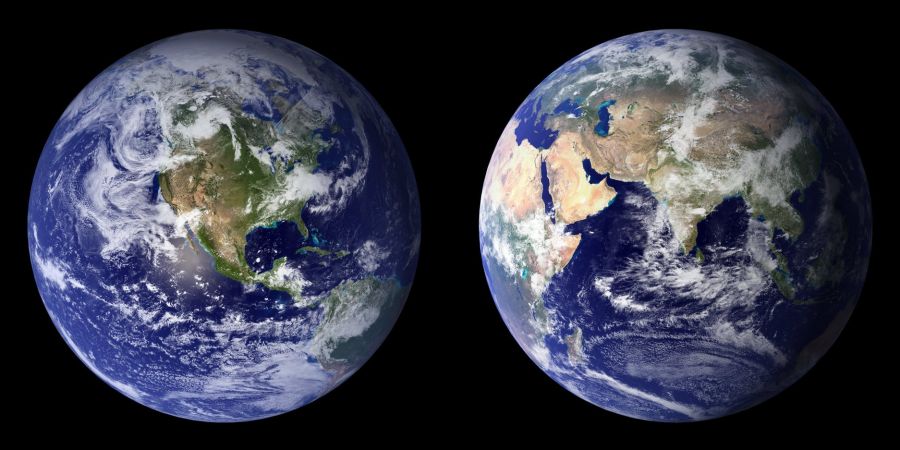

Earth is not only the place we call home, it is rich in scientific wonders and stunning beauty.
It also enables some pretty cool things you may not have known!
Check out the 10 coolest things we learned about planet Earth below!
1. The Earth is 4.5 billion years old
How do we know that?
To find out how old the Earth is, scientists examine rocks and sediments and try to determine the age of this piece of sediment.
But it's not as easy as it seems. Through the processes of plate tectonics, the Earth is constantly recycling rocks, breaking them down into magma inside and pushing them up to the surface. The oldest rocks they found are from Austria and form the basis for scientific estimates of the Earth's age.
4.5 billion years old, lots of birthday cakes!
2. A year on Earth is not 365 days
actually 365.2564 days. It is that extra 0.2564 days that requires a leap year every four years. So every four years, 2004, 2008, 2012, etc., add one day in February. The exception to this rule is when the year in question is divisible by 100
3. Earth's many moons?
Technically, Earth has only one moon. However, Earth
has two orbits
named 3753 Cruithne and 2002 AA29, which are part of a larger group of asteroids known as Near Earth Objects (NEOs). Known as 3753 Cruithne, the asteroid is 5 kilometers in diameter and is sometimes called "Earth's second moon." It doesn't actually orbit the Earth, but it has a synchronous orbit with our home planet. There are also orbits that appear to follow the Earth in orbit, but actually follow their own orbits around the Sun.
4 Antarctica
Did you know that Antarctica is actually considered a desert? In the inner regions, it receives only 50 mm of precipitation per year (usually snow, of course).
Despite the desert-like climate of Antarctica, it contains 70% of the earth's freshwater and 90% of the earth's ice.
5. Earth recycles itself
Did you know that Earth is the only planet in our solar system that has plate technology?
Earth's outer crust has several regions called tectonic plates. Beneath it is a magma core, with plates moving and occasionally colliding.
When they collide and pull apart, magma bubbles and new crust forms.
This important process produces earthquakes, volcanic eruptions, orogenic mountains, and oceanic trenches.
But it is also part of the carbon cycle in which microscopic organisms and plants die, fall to the bottom of the ocean and are absorbed, transporting the carbon-rich remnants of that life into the Earth's interior over time. and recycle. This removes carbon from the atmosphere so it doesn't suffer from the runaway greenhouse effect that happened on Venus. Without the action of plate tectonics, there would be no way to recycle this carbon and the Earth would overheat.
Thank you ✨ save our planet🌎


